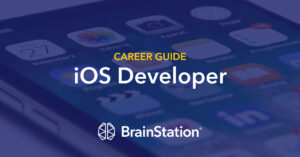Are you drawn to the world of app development? Have you ever wondered what it takes to become an iOS app developer? Look no further, as we have gathered essential information to guide you on your journey. In this article, we will explore the tools and resources that can simplify your daily tasks, as well as provide you with a step-by-step guide on how to embark on a career as an iOS app developer.
Understanding iOS App Development
What is iOS App Development?
iOS App Development is the process of creating mobile applications specifically designed for Apple’s iOS operating system. This operating system powers popular Apple devices such as the iPhone and iPad. iOS app development involves coding and designing software applications that can run smoothly on these devices, offering a seamless user experience.
Why Become an iOS App Developer?
Becoming an iOS app developer offers numerous opportunities for growth and success. Here are a few reasons why you should consider pursuing a career in iOS app development:
- Vast User Base: Apple devices have a loyal and extensive user base globally. Developing apps for iOS means reaching millions of potential users and maximizing your app’s visibility.
- Lucrative Job Market: The demand for skilled iOS app developers is consistently high. Companies are eager to hire professionals who can create innovative and engaging apps for their customers.
- Exciting and Challenging Projects: iOS app development allows you to work on a variety of projects across different industries. From gaming and entertainment to finance and healthcare, you have the opportunity to explore diverse sectors.
- Continuous Learning: The field of iOS app development is constantly evolving. As a developer, you’ll have the chance to stay updated with the latest technologies and frameworks, keeping your skills fresh and relevant.
Skills Required for iOS App Development
To excel in iOS app development, certain skills are essential. Here are the key skills you need to acquire:
- Swift Programming Language: Swift is Apple’s official programming language for iOS app development. You should have a strong understanding of Swift’s syntax, data types, control structures, and object-oriented principles.
- User Interface (UI) Design: Creating visually appealing and intuitive user interfaces is crucial. Familiarity with UIKit, Apple’s UI framework, and knowledge of designing layouts using Auto Layout are important skills for iOS app developers.
- Data Management: iOS apps often require storing and retrieving data. Familiarity with Core Data, Apple’s persistent data storage framework, is essential. Additionally, knowledge of data persistence techniques and making API requests using URLSession is vital for app development.
- Problem-Solving and Debugging: As an iOS app developer, you’ll encounter challenges and bugs along the way. Strong problem-solving and debugging skills are indispensable for identifying and resolving issues efficiently.
- Collaboration and Communication: iOS app development often involves working in teams. The ability to effectively collaborate, communicate ideas, and understand project requirements is crucial for successful app development.
Getting Started with iOS App Development
Setting Up a Mac
To start developing iOS apps, you’ll need a Mac computer. Apple’s development tools are exclusively available on macOS. Ensure that you have access to a Mac device with an up-to-date operating system.
Installing Xcode
Xcode is the integrated development environment (IDE) used for iOS app development. It includes essential tools for building, testing, and debugging apps. You can download Xcode for free from the Mac App Store.
Exploring the Xcode Interface
Once you have Xcode installed, take some time to familiarize yourself with its user interface (UI). Xcode provides a range of features and functionalities that support app development, such as code editor, interface builder, device simulators, and debugging tools. Understanding how to navigate and utilize these features is vital as you delve into iOS app development.
Learning iOS Development Fundamentals
Introduction to Swift
Swift is a powerful and intuitive programming language developed by Apple. It is designed to be safe, fast, and expressive. Begin your iOS app development journey by learning the basics of Swift, including variables, constants, control structures, functions, and classes.
Basic Syntax and Concepts
Mastering the syntax and concepts of Swift is crucial for writing clean and efficient code. Understanding concepts like optionals, closures, protocols, and error handling will allow you to create robust and maintainable iOS apps.
Understanding Variables and Data Types
In iOS app development, variables and data types play a crucial role. Learn about the different data types available in Swift, such as Integers, Strings, Booleans, Arrays, and Dictionaries. Understanding how to declare and manipulate variables is fundamental for building iOS apps.
Creating User Interfaces with UIKit
Introduction to UIKit
UIKit is a framework provided by Apple for building user interfaces in iOS apps. Get acquainted with the UIKit framework and its key components, such as view controllers, views, and controls. Understanding how to create responsive and visually appealing user interfaces using UIKit is essential for iOS app development.
Building Views and Controls
UIViews and UIControls are the building blocks of iOS app interfaces. Learn how to create and customize different types of views, such as buttons, labels, text fields, and images. Understanding how to handle user interactions and implement event handlers for various controls is crucial.
Designing Layouts with Auto Layout
Auto Layout is a powerful layout system in iOS that allows you to create adaptive user interfaces. Master the basics of Auto Layout, including constraints, anchors, and stack views. With Auto Layout, you can build interfaces that adapt to different device sizes and orientations, ensuring a consistent user experience across iOS devices.
Working with Data and Networking
Storing Data with Core Data
Core Data is Apple’s framework for data persistence in iOS apps. Learn how to integrate Core Data into your iOS apps to store, query, and manage complex data. Understand concepts such as entities, attributes, and relationships to build data-driven applications.
Implementing Data Persistence
In addition to Core Data, explore other data persistence techniques available in iOS app development. Familiarize yourself with options like UserDefaults, File System, and Keychain. Each technique has its advantages, and understanding when to use them is essential for efficient data management.
Making API Requests with URLSession
iOS apps often need to communicate with web services and retrieve data. URLSession is Apple’s framework for making network requests in iOS apps. Learn how to use URLSession to send HTTP requests, handle responses, and parse JSON data. Implementing API requests is crucial for integrating external data sources into your iOS apps.
Integrating Device Features
Accessing Camera and Photos
Many iOS apps utilize device features like the camera and photo library. Explore how to access and utilize these features in your own apps. Learn about frameworks like AVFoundation and UIImagePickerController to capture photos and videos, and interact with the user’s photo library.
Utilizing GPS and Location Data
Location-based services are widely used in iOS apps. Understand how to leverage the device’s GPS capabilities and integrate location data into your iOS app. Learn about Core Location framework, geocoding, reverse geocoding, and handling user permissions related to location services.
Using Sensors and Gyroscope
iOS devices come equipped with various sensors, including gyroscopes, accelerometers, and magnetometers. Explore how to utilize these sensors in your iOS apps to create interactive and dynamic experiences. Learn how to access and interpret data from these sensors to enhance user engagement.

Testing and Debugging
Introduction to Testing
Testing is a crucial aspect of iOS app development. Learn the fundamentals of software testing, including unit testing and UI testing. Understand the importance of writing testable code and creating effective test suites to ensure the stability and reliability of your iOS apps.
Writing Unit Tests
Unit tests help verify the correctness of individual components in your iOS app. Discover the various testing frameworks available in Swift, such as XCTest, and learn how to write unit tests for functions, classes, and modules. Writing comprehensive unit tests ensures the quality and maintainability of your code.
Using Debugging Tools
Debugging is an essential skill for iOS app developers. Become familiar with Xcode’s powerful debugging tools, including breakpoints, log messages, and the debugger console. Learn how to track and diagnose issues in your code, ensuring the smooth performance of your iOS apps.
Publishing Your iOS App
Registering as an Apple Developer
Before you can publish your iOS app on the App Store, you need to enroll in the Apple Developer Program. Learn how to register your account and gain access to resources, documentation, and tools necessary for app distribution. Being an Apple Developer allows you to create and distribute apps to millions of users worldwide.
Preparing Your App for Submission
To ensure a smooth app review process, you must prepare your iOS app for submission to the App Store. Learn the guidelines and requirements set by Apple to create a high-quality and compliant app. Understand how to optimize your app’s performance, handle data privacy, and incorporate necessary app metadata.
Submitting Your App to the App Store
Once your app is ready, it’s time to submit it to the App Store. Familiarize yourself with the submission process, including creating app archives, generating app icons, preparing screenshots, and writing compelling app descriptions. Understand the review process and steps to follow for a successful app submission.

Continuous Learning and Skill Improvement
Staying Updated with iOS Updates
The field of iOS app development is constantly evolving. Stay updated with the latest iOS updates, frameworks, and industry trends. Apple regularly releases new iOS versions, offering improvements, features, and tools that can enhance your app development process.
Exploring Advanced iOS Concepts
Once you have a solid foundation in iOS app development, challenge yourself by exploring advanced concepts and frameworks. Dive into topics like Core Animation, Core ML, Augmented Reality (ARKit), and SwiftUI. Expanding your knowledge will allow you to create cutting-edge and innovative iOS apps.
Joining the iOS Developer Community
Connect with fellow iOS app developers by joining online forums, communities, and social media groups. Engage in discussions, seek advice, and share your experiences. The iOS developer community is a valuable resource for learning, networking, and staying inspired in your app development journey.
Building an Impressive Portfolio
Creating Personal Projects
Developing your own iOS projects is a great way to showcase your skills and creativity. Create personal projects that demonstrate your knowledge of iOS development fundamentals, user interface design, and data management. This not only adds value to your portfolio but also provides real-life examples of your capabilities.
Contributing to Open Source
Contributing to open source projects allows you to collaborate with other developers and gain valuable experience. Find iOS-related open source projects and contribute code, bug fixes, or documentation. Open source contributions demonstrate your commitment to the iOS development community and highlight your expertise.
Building Apps for Clients
Working on client projects provides real-world experience and exposure to different industries. Offer your iOS app development services to clients and develop apps tailored to their specific needs. Building apps for clients not only adds diversity to your portfolio but also strengthens your communication and project management skills.
By following the outlined path, you’ll be well on your way to becoming a skilled iOS app developer. Remember to practice and continuously learn, stay connected with the iOS developer community, and build a strong portfolio to showcase your abilities. iOS app development offers endless opportunities for creativity and innovation while being part of a thriving and rewarding industry. Good luck in your journey towards becoming an iOS app developer!


